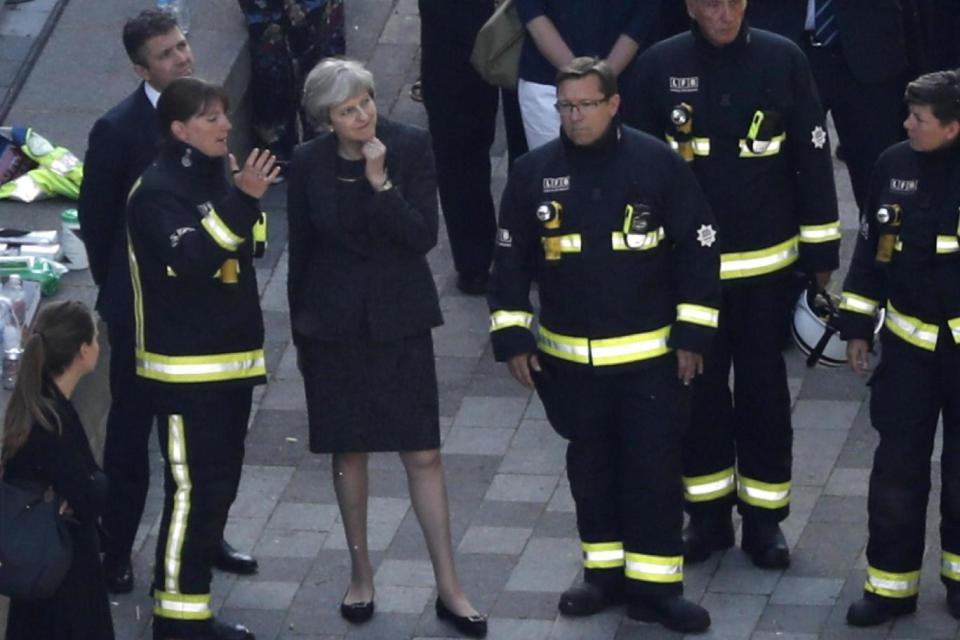Love Island fireman challenge 'reinforces misconception that all firefighters are muscle-bound men', London fire brigade warns
London’s chief firefighter has hit out at Love Island for reinforcing stereotypes of the profession which puts women off joining the service.
Dany Cotton, the head of the London Fire Brigade (LFB), called out the ITV2 dating show for portraying the "offensive cliche" in its "fireman challenge".
The activity, broadcast to millions of viewers, saw male contestants strip and pretend to save a female from danger in a sexualised portrayal of a firefighter’s job.
Ms Cotton, the first woman to hold the most senior position at LFB, said: "I'm especially concerned about how many young people think firefighting is for men.
"When popular shows like Love Island roll out every offensive cliché possible with their so-called 'fireman challenge', it reinforces the misconception that all firefighters are musclebound men.
“No wonder so many young women are put off by that."
The Standard has approached ITV for comment.

It comes as a YouGov survey commissioned by the Mayor of London found that a quarter of women think men are better equipped to be firefighters.
Just 7 per cent of women thought the same of police officers when asked: "Do you think men are more able to do the job, women are more able to do the job, or they are both equally able?"
Concerns about gender stereotyping have led the LFB to back proposals by the Advertising Standards Authority (ASA) to ban sexist adverts.
Other high-profile examples of sexist stereotypes cited in the brigade's research include a Suzuki advert featuring Ant and Dec which mentioned "fireman training", and an advert for Harpic toilet cleaner which saw female characters objectifying a male firefighter.
Of just over 5,000 operational firefighters in the LFB, there are around 300 women.
Additional research by the LFB among women revealed concerns that the fire service is a "very masculine environment" and "a sexist field".
Ms Cotton urged "advertisers, journalists and marketers to" stop using "lazy cliches" as she urged 40 news editors across national and local titles to curb their usage of sexist language.
She said: "It was 30 years ago that people were shocked to see women police officers and it's frankly embarrassing that the public are still shocked to see women firefighters today.
"The armed forces and the police force have all been enriched by having women better represented across their ranks and it's time the fire and rescue service caught up.
"Role models like Juliet Bravo and Jane Tennison changed people's perception of women in the police force. Now it's time for advertisers, journalists and marketers to stop relying on lazy cliches and help change attitudes which will in turn encourage more women to embark on a wonderful and fulfilling career in the fire service."
The ASA launched a consultation in May which proposed that adverts "must not include gender stereotypes that are likely to cause harm, or serious or widespread offence". The results will be published later this year.
The consultation followed a report last year from the watchdog which called for stronger regulation of adverts based on "gender stereotypical roles".
The brigade's work is part of its £FirefightingSexism campaign, which aims to improve equality and diversity within the organisation.
The poll, carried out in June 2017, surveyed 1,042 adults including 534 women and was published for the first time today.
A spokeswoman for the ASA said: "We've published evidence that shows gender stereotypes have the potential to cause harm because they limit how people's potential is considered by themselves and others - with costs to the individual, economy and society.
"We've already been taking action to ban ads which reinforce harmful stereotypes and we'll publish the results of our consultation around new rules for advertisers later this year."

 Yahoo News
Yahoo News 
